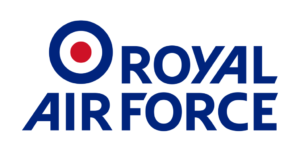Chemical Engineer careers guide & job profile
Chemical engineers are sometimes known as ‘universal engineers’ because they know a broad range of stuff and have their fingers in all kinds of career pies.
Chemical engineering real-life stories: Meet Chris
Cool chemical engineering careers... Chris designs ice-creams in Italy!
See my storyHow much money can you earn as a Chemical Engineer?
These LMI Job Trends give you a sneak peek of how much you could earn starting out for this career, and how much your salary could grow with experience.
Average salary for Chemical Engineering jobs
Recent labour market information says you can earn £29,000 – £60,000 a year on average as a chemical engineer in the UK.
Your starting salary can vary because of factors like level of experience, training, or location. Your salary will increase over time as you build skills, knowledge and experience.
Skills you need to become a Chemical Engineer
Useful skills to put in your CV:
- Self-belief skills – it takes determination to get hold of salon managers and owners as they are always so busy. You will also have sales targets to reach. But you have confidence in yourself and your company’s products and you never give up!
- Good communication skills and teamworking skills – you may be leading a team of junior sales and marketing staff, and your communication and negotiation skills have to be tip-top to create new sales.
- Good problem solving skills – you will need to do strategic thinking to help beauty products get sold in more places. Can you think outside the box and see opportunities where other people see problems?
- Good organisation skills – you always need to be organised if you’re leading a team or creating a business strategy. Your work can involve travel and meetings, so make sure your diary planner is up to date and you’re never late for anything!
- Presentations skills – you will have to present beauty products to potential customers like salon owners or beauty buyers for department stores in a very professional and polished way. When you are pitching the products, you are an ambassador for the brand!
Top Skills-boosting Tip
How organised are you? Better work on your self-management skills because many chemical engineers are freelance and/or self-employed. Get organised to get involved with cool projects, build clients and develop your portfolio.
How Do You Get These Skills?
Vocational qualifications and work experience will help you build these skills over time.
What Qualifications & Training Do You Need For Chemical Engineering Careers?
School, college and training
Many engineering jobs require some knowledge of science and being comfortable around maths.
In your GCSEs or the equivalent, aim to get passing grades of 9-4 (A*-C) in maths and at least one science.
You can then go on to take at least one A-level or further education qualification in a topic related to science or maths.
This will give you a good foundation education in the engineering principles you might need to know. It will also help you to apply for further education such as a degree.
Vocational Qualifications
As an alternative to A-levels, you can study a vocational course. You could think about doing an HNC/HND or foundation degree in one of the following subjects:
- HND/HNC Chemical engineering
The Engineering Council has a list of qualifications and courses.
T-Levels
T-Levels are a choice for learners after GCSEs alongside apprenticeships and A-levels. You can do a T-Level in Engineering, Manufacturing, Processing and Control. This qualification comes with an industry placement and can help you get an engineering career.
BTECs
As an alternative to A-Levels, you can do BTECs from the age of 16. The BTEC HND in Chemical Engineering gives you the specialist knowledge and technical skills to progress into, for example, an apprenticeship or employment.You’ll learn a lot including chemical engineering principles, ways to apply chemistry in the real world, thermodynamics, modelling, design and brushing up your lab skills.
Apprenticeships
An apprenticeship is a scheme where you train while earning a starting salary.
With an apprenticeship (or advanced apprenticeship) you’ll have a paid job with an employer that includes structured training and learning. This training leads to an official qualification that’s recognised by employers as an industry standard.
Chemical engineering apprenticeships are available in the UK. They can sometimes be competitive to get into. You can also look for process operations and production technician apprenticeships which lead to a chemical engineering qualification.
If you’re interested in life sciences, like cell and gene therapy, you could launch into a chemical engineering career with ATAC apprenticeships in life sciences!
You can seek out chemical engineering apprenticeships with organisations like Find an Apprenticeship.
University degrees and graduates
Many chemical engineers enter the profession as graduates.
You’ll normally need an Institution of Chemical Engineers (IChemE) or Institution of Engineering and Technology (IET) accredited BEng degree in chemical, process or biochemical engineering.
If you don’t have the qualifications you need in maths or science, some universities can offer you a foundation year.
Useful organisations to find out more:
UCAS has more information on degree courses and entry requirements.
Engineering Career FAQs & Insights
Is there something you’d like to know about engineering careers? Maybe we can help!
Career Progression
With time and experience you could become a senior process engineer or design engineer using computer-aided design to dream up new products and equipment. If you have leadership qualities, you could also become a research and development manager, or a plant manager overseeing operations.
You could also become self-employed and move into consultancy work – but you’ll need a few years and some big successes under your belt first.
What Work Experience Do You Need For Chemical Engineering Jobs?
Work Experience Tips
It can help you decide if this is the right career for you if you have previously done work experience in a science or engineering environment.
Any work experience where you have demonstrated your engineering skills can help your application.
Examples of relevant work experience include:
- Work shadowing (even if it’s just for a day)
- Work placements in a company
- Work experience placements on a college or university course
If you’re a Year 12 student, you can apply for a Nuffield Research Placement. Over 1,000 students a year get the chance to work with scientists, mathematicians and engineers from all kinds of universities and organisations.
Work experience tipsVolunteering Tips
If you’re aged 21 or under, you could build experience and skills relevant to design and engineering by becoming an Industrial Cadet. You’ll join other students from local schools to take part in industry based activities with a local employer. Visit industrialcadets.org.uk for more info.
If you’re still at school, one way to expand a range of engineering skills (including chemicals) is to join a school STEM club.
Volunteering tipsWhat Does a Chemical Engineer Do?
Where could you work and what could you do as a chemical engineer?
Knowing a little more about chemical engineering will help you show employers that you understand what this job is about. It can also help you decide if it’s right for you.
You’ll usually work in one of two main areas: research (study) or manufacturing (making).
As a chemical engineer you’ll be helping to turn raw materials into everyday and industrial products.
Your skills could be useful in all kinds of industries, including:
- Food and drink
- pharmaceuticals
- textiles
- oil and gas
- minerals
- energy and water
- biotechnology (e.g. antiobiotics)
Typical research and development activities:
- Working in a lab and with computers
- Testing new ways to make and improve products
- Using computer models to work out better, safer and cheaper ways to make things
- Planning how to get production from experimenting in a lab to testing prototypes then making the final products on a much bigger scale
- Keeping the chemical side of things safe by thinking about how to safely deal with any waste.
Typical manufacturing activities:
- Helping plant designer to make new equipment used in the production of desired products
- Helping to check things are running smoothly at the processing plant
- Keeping an eye on how production is going, and deal with any problems that crop up
- Making sure everything is fit for use by working with health and safety managers as well as quality control. The products made must be safe – and so must the people making them.
How To Find Chemical Engineering Jobs: Next Steps
To find jobs for young people in this role, search on jobs boards for early career roles and opportunities with these words in the title:
- Chemical engineering apprenticeship
- Chemical engineering technician
- Graduate chemical engineer
- Chemical engineering graduate
You can also take a look at our database of local opportunities to see if there are any relevant jobs, work placements, or careers events and workshops to help you get started.
These websites might be able to help you find chemical engineering experience or a role that’s a good fit for you:
ATAC Advanced Therapies Apprenticeships

Get into life sciences careers after school with Level 3+ ATAC apprenticeships in advanced therapies!
Advanced Therapies ApprenticeshipsGet Into Manufacturing & Engineering Careers With Youth-Friendly Employers
These employers and organisations are here to help. They care about your potential and desire to learn, not just your qualifications and experience. They may be able to offer traineeships, apprenticeships, graduate schemes, first jobs, careers advice, wellbeing support and much more.
Engineering Career Tips & Opportunities

Field Engineering Apprenticeship with Coca-Cola Europacific Partners – Reading, High Wycombe & Slough #CreateYourFuture

Field Engineering Apprenticeship with Coca-Cola Europacific Partners – Romford, Ilford & Chingford #CreateYourFuture

Field Engineering Apprenticeship with Coca-Cola Europacific Partners – Taunton, Honiton & Yeovil #CreateYourFuture
Engineering & Manufacturing Career Guides
View job descriptions with average UK salary, useful qualifications and a variety of routes into this career.
See All Our Youth-Friendly Employers






































































YES! I Want More Free Careers Help...
So what are you waiting for? Grab your future.






































